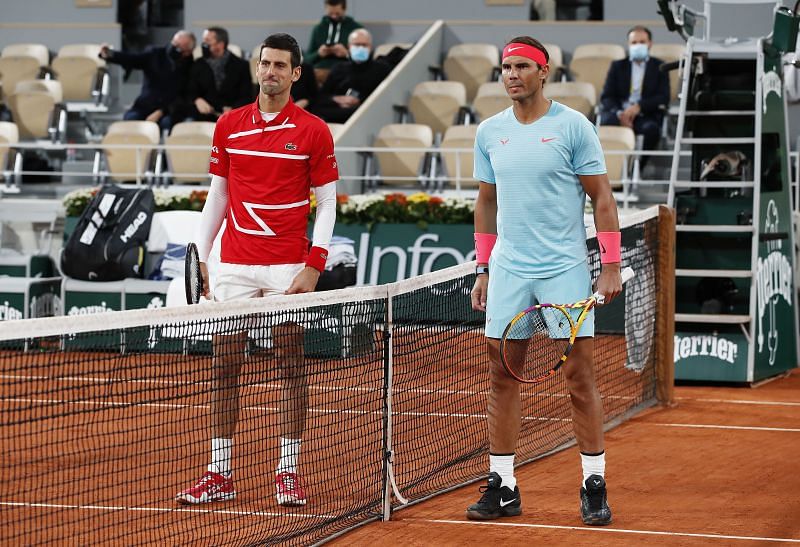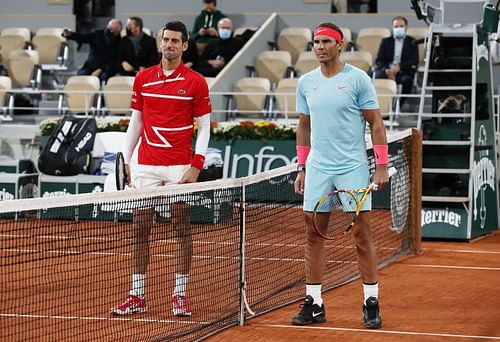
"That 6-0 set was very misleading" - Rafael Nadal on why he never let his guard down against Novak Djokovic

Many had expected a close battle between Rafael Nadal and Novak Djokovic at the Roland Garros final earlier this month. However, it turned out to be a one-sided affair.
The Spaniard defeated World No. 1 Novak Djokovic 6-0, 6-2, 7-5, and the first-set bagel in particular took everyone by surprise. Nadal has now revealed his thought process during the match in an interview with El Periodico, specially focusing on the aftermath of that lopsided first set.
Rafael Nadal claims he has learned to never drop his guard at any point in a match - even if he wins a set 6-0, like he did in Paris. He added that the score does not reflect the opponent's caliber; rather, it just shows that a few points went his way.
"I will tell you one thing: the way tennis scoring works is very difficult," Nadal said. "After that 6-0, many thought (were sure) that I would beat Novak (Djokovic) and nothing is further from the truth. That 6-0 was very misleading, because the level of one (player) and the other was not of a 6-0. You cannot continue playing believing that you have defeated him."
Rafael Nadal went on to explain that his mindset wouldn't have changed even if the situation had been reversed and he had lost the first set.
"And sometimes, when it is the other way around, when the one who loses is me, whatever the result, I think the same and start the next set thinking that the match starts again," Rafael Nadal said. "The most important thing when you are on the court is not to stop giving yourself opportunities, never lower your arms, because you can improve, inspiration comes to you, the opponent can fail, you can relax...If you mentally lower your arms or lose your confidence, then it is impossible to recover."
Rafael Nadal credited his uncle and former coach Toni Nadal for influencing his mindset in this regard. Toni Nadal has confessed several times in the past that he was very strict with his nephew during training.
"It is a matter of habits," Nadal said. "The best players, tennis-wise speaking, are mentally very strong and have that ability. In my case, and I can only speak for myself, it is a personal obligation that I have always had since I was a child, because I have had an environment around me that has never allowed me to lower my arms. My uncle Toni, in that sense, has always been very demanding of me and I think that, thanks to that, it is easier for me to continue, continue and continue fighting."
Rafael Nadal credits having a stable base in Mallorca as the major reason behind the longevity of his career

Over the years, Rafael Nadal has managed to bounce back from several serious injuries. But very few would have expected that the Spaniard would be winning Grand Slams at the age of 34 given the incredible physical effort he puts in every match.
Rafael Nadal credits his long career to having a stable base in Mallorca. That is where the legend tries to live an ordinary life, with his family and friends.
"When you live a normal, ordinary, stable life, it is easier to get, on an emotional level, that stability to help you on the court," Nadal said. "Sport cannot be separated from life. If I had gone to live on the other side of the world, separated from my family, friends and loved ones, I would have suffered and dragged that emotional wear on the court."
"The fact of not having separated myself from my usual environment, since I was a child, has helped me to have a longer career. I have done everything my friends have done, beach, parties, sports, but less times, of course. That emotional stability, that normal, simple daily life, has also helped me keep my feet on the ground and not go crazy when I won or see everything negative after a defeat," he added.